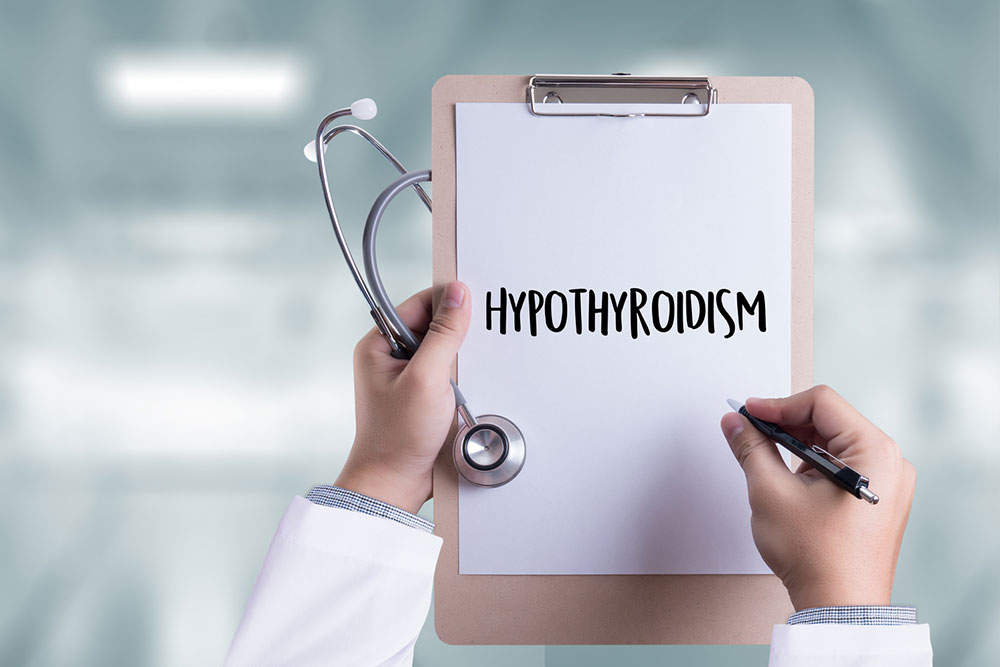Comprehensive Guide to Detecting and Understanding Thyroid Disorders
This comprehensive guide offers insights into the signs and symptoms of thyroid disorders, emphasizing early detection and management. It highlights the importance of understanding thyroid function, recognizing physical and emotional symptoms, and seeking timely medical evaluation to ensure optimal health. Perfect for those at risk or experiencing unexplained health changes, this article provides valuable information for maintaining thyroid health and preventing complications.

Comprehensive Guide to Detecting and Understanding Thyroid Disorders
The thyroid gland, a vital endocrine organ located at the front of the neck just below the Adam's apple, is responsible for producing critical hormones that regulate numerous bodily functions. This butterfly-shaped gland primarily secretes two hormones: triiodothyronine (T3) and thyroxine (T4). These hormones are essential for controlling metabolic rate, supporting growth and development, and maintaining overall energy balance. When the thyroid's normal function is disrupted, it can lead to a range of health issues affecting the heart, mental health, energy levels, bones, and reproductive health.
Understanding how the thyroid functions and the signs of its dysfunction can help in early diagnosis and effective management of thyroid disorders. The production of thyroid hormones is tightly regulated by a feedback loop involving the hypothalamus and pituitary gland in the brain. The hypothalamus releases thyrotropin-releasing hormone (TRH), which signals the pituitary gland to produce thyroid-stimulating hormone (TSH). In response, the thyroid releases T3 and T4 into the bloodstream. When hormone levels are sufficient, signals to the brain decrease TSH and TRH production to maintain balance. However, disruptions in this system may lead to either hypothyroidism, characterized by hormone deficiency, or hyperthyroidism, marked by excessive hormone production.
Recognizing thyroid problems involves being aware of a variety of symptoms that can manifest physically, emotionally, and behaviorally. These signs are especially critical for women over the age of 35, who are at a higher risk for thyroid dysfunctions, although anyone can be affected. Early detection relies on observing these symptoms and seeking medical testing, primarily blood tests that evaluate TSH, T3, and T4 levels. This proactive approach enables timely intervention, potentially preventing severe complications and improving quality of life.
Common Signs and Symptoms of Thyroid Disorders
Persistent Fatigue: Feeling exhausted despite getting enough sleep is often linked to hypothyroidism, where the body's metabolic processes slow down due to hormone deficiency.
Sudden Weight Changes: Unexplained weight gain or loss can be an indication of thyroid imbalance. Hypothyroidism may cause weight gain, while hyperthyroidism often leads to weight loss.
Changes in Heart Rate and Palpitations: An irregular heartbeat or rapid heart rate may signal hyperthyroidism, whereas a slow heartbeat can be associated with hypothyroidism.
Mood and Cognitive Alterations: Anxiety, irritability, depression, difficulty concentrating, memory lapses, and mental fog are common in thyroid disorders.
Temperature Sensitivity and Sweating: Excessive sweating, intolerance to heat, or cold sensitivity can be linked to hyperthyroidism or hypothyroidism respectively.
Skin, Hair, and Nail Changes: Dry skin, brittle nails, hair loss, or thinning hair are typical symptoms associated with thyroid issues.
Menstrual and Reproductive Health: Irregular, heavy, or painful periods and fertility issues are often linked to thyroid dysfunctions.
Digestive and Bowel Habit Changes: Constipation or diarrhea may also reflect hormonal disturbances related to thyroid health.
Pain and Sensitivity: Neck discomfort or swelling, as well as increased sensitivity to temperature fluctuations, can be indicative of thyroid problems.
Because these symptoms often overlap with other conditions, proper diagnosis through blood tests and clinical evaluation is crucial. Regular health screenings and awareness of one's body signals are key to catching thyroid issues early and managing them effectively. Advances in medical science have made it easier to diagnose and treat thyroid disorders, enabling individuals to maintain their health and well-being with appropriate therapies and lifestyle adjustments.
Understanding the complexities of thyroid health is essential for overall wellness. Recognizing early signs, consulting healthcare professionals, and undergoing routine testing can lead to timely management of thyroid conditions, significantly reducing the risk of complications. Whether dealing with hypothyroidism or hyperthyroidism, knowledge and proactive health measures empower individuals to take control of their health journey.





